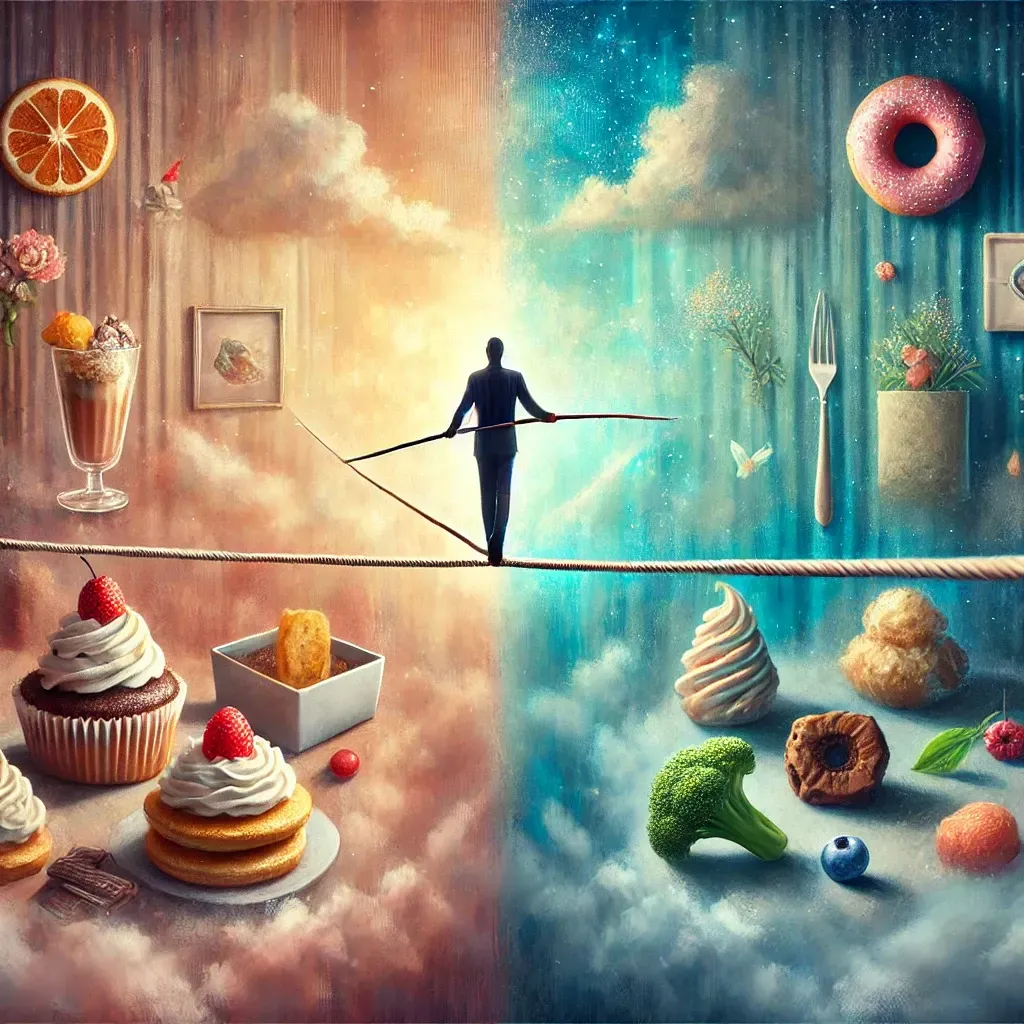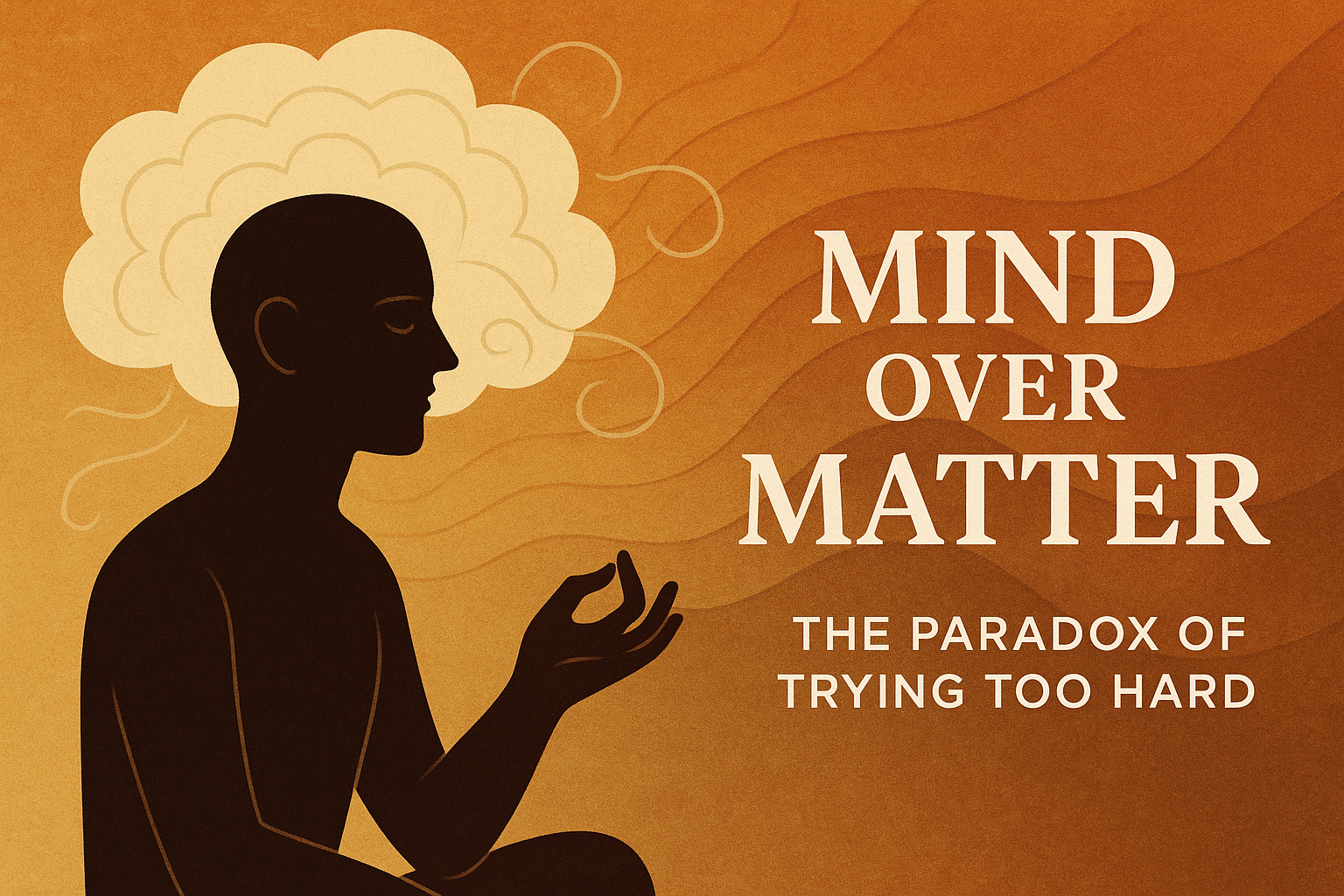Check Yourself
The Art of Self-Control

When was the last time you truly exercised self-control?
Was it last night when you decided to skip dessert, even though it looked delicious? Was it when you held your tongue and chose not to say something hurtful? Or perhaps you’ve been gliding through life without much inhibition at all. It’s worth checking in with ourselves now and then—after all, as the saying goes, “check yourself before you wreck yourself.”
Self-control is crucial if you want to reach your goals. Without it, you may find yourself simply following the crowd, squandering precious time and energy on empty pursuits of perpetual indulgence, only to realize too late that you’ve settled for average instead of achieving your best.
My mom always used to say, “everything in moderation,” and while I didn’t fully grasp the wisdom of that as a kid, I certainly do now. Even good things become bad when overdone. They lose their spark, and we lose the delight that made them special in the first place. Take, for example, a favorite sushi spot my wife and I love. It’s a small place down the street that serves one of the best omakase experiences we’ve ever had. We usually go there for big celebrations like anniversaries or birthdays, truly savoring every moment. I once floated the idea of going there on an ordinary day, but my wife reminded me that if we went too often, we’d lose the magic that makes it so extraordinary.
If you turn a special treat into a routine, where do you go next for that sense of excitement? Do you keep seeking out fancier and fancier restaurants just to feel something new? That path can lead to an endless chase for novelty, and it’s one reason we need to practice self-control.
So, here’s a little challenge for you: think of something you enjoy regularly that may have lost some of its luster over time. Is it that weekly restaurant outing that’s no longer as thrilling? Have you grown indifferent to new clothes because you buy them so often? Maybe traveling abroad doesn’t spark the same wonder it once did because you’re always on the go. When we indulge too frequently, we risk losing that fresh excitement and start living on autopilot.
This is where the “law of diminishing returns” quietly creeps in. We cling to the memory of how thrilling something once was, convinced we’re still getting that same rush. But eventually, we look around and realize it will never feel exactly like the first time. It’s akin to using up all your luck at once—after that, it’s just not the same.
Whether it’s hunting for the perfect Pokémon card or planning a dream vacation, the question remains: Will one more be enough, or will I keep wanting more? The truth is, we almost always want “just one more.” Recognizing this pattern can help us pause and choose a different path. Instead of chasing that fading high, we can find joy in something less detrimental or discover a new source of excitement altogether.
Stepping outside your comfort zone is one of the best ways to refresh your perspective. If you feel like you’re constantly chasing something—some new item, experience, or indulgence—ask yourself if it’s truly making you happy, or if you’re just chasing the memory of happiness. Variety might be the key. By trying new activities or experiences, you may realize the world has so much to offer that you don’t have to rely on the same old fix.
Ultimately, you don’t have to keep pursuing the same things that once brought you joy, hoping to recapture that first flush of excitement. Sometimes, there’s something entirely different out there waiting for you—something you haven’t even imagined yet. Keep special occasions special, and don’t let indulgence become your default. Most of all, watch out for those times when you convince yourself you need something to be happy. That kind of reliance can pull you away from your true potential.
So take a moment to reflect on where you might be overindulging or clinging to old habits. Embrace self-control not as a restriction, but as a way to keep life’s pleasures vibrant and meaningful. When you find balance, you free yourself to enjoy what’s in front of you—and that’s a feeling no amount of “one more” can replace.
Share









